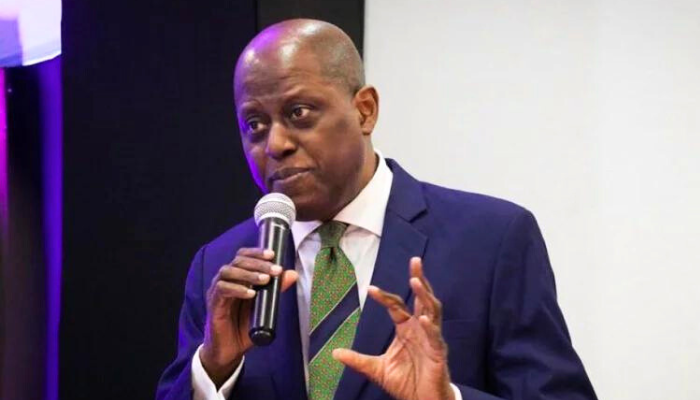The Governor of the Central Bank of Nigeria (CBN), Olayemi Cardoso, has reaffirmed the apex bank’s commitment to sanitizing the foreign exchange (FX) market by eliminating speculative activities, ensuring transparency, and stabilizing the naira as part of broader economic recovery efforts.
Cardoso made these remarks during his address at the February 2025 Monetary Policy Committee (MPC) meeting, where he underscored the CBN’s resolve to maintain strict regulatory oversight over the forex market.
The CBN governor emphasized that a well-regulated forex market is essential to achieving price stability, controlling inflation, and fostering sustainable economic growth.
“We must maintain a heightened level of surveillance in our foreign exchange market and root out any bad actors and practices that threaten the smooth functioning of the market and stability of the exchange rate. The Central Bank has an unwavering commitment to this objective,” he declared.
Industry experts have welcomed this stance, noting that recent reforms have begun yielding tangible results.
According to Professor Uche Uwaleke, a financial economist at Nasarawa State University, “CBN’s commitment to transparency and regulation in the forex market is a crucial step toward building investor confidence and reducing volatility. The introduction of structured policies will attract more foreign direct investment (FDI) and promote a balanced currency regime.”
Cardoso attributed the relative stability of the naira to key reforms introduced by the CBN, including the launch of the Electronic Foreign Exchange Matching System (B-Match) and the Nigeria Foreign Exchange Code.
These initiatives, he explained, have enhanced transparency, increased investor confidence, and ensured sustained liquidity from foreign investment inflows, export proceeds, and remittances.
“The reforms are starting to yield visible outcomes, such as a stronger naira and reduced speculative activity, contributing to a more market-driven price discovery process for the local currency,” he noted.
READ ALSO: Cardoso highlights Nigeria’s economic progress as forex market stabilizes
Financial analyst and forex market specialist Bismarck Rewane, CEO of Financial Derivatives Company Limited, corroborated this assessment: “Market-driven price discovery is key to long-term currency stability. While CBN’s interventions have been instrumental in stabilizing the FX market, a more flexible exchange rate regime and complementary fiscal measures will be needed to sustain the momentum.”
Cardoso acknowledged the recent moderation in inflation following the rebasing of the Consumer Price Index (CPI) by the National Bureau of Statistics (NBS).
The newly rebased data indicated a drop in headline inflation to 24.48% in January 2025 from 34.80 per cent in December 2024 under the old methodology. However, he warned that inflationary pressures remain a key risk, particularly due to rising food prices and structural inefficiencies.
Despite these risks, Nigeria’s macroeconomic indicators show signs of improvement. The country’s current account balance has turned positive, oil production has increased to 1.54 million barrels per day, and external reserves have reached $39.4 billion as of mid-February 2025—equivalent to about 9.6 months of import cover.
Cardoso emphasized that the fight against inflation and FX volatility requires stronger collaboration between monetary and fiscal policymakers.
He referenced the recently held Monetary Policy Forum, where stakeholders agreed to enhance coordination to ensure effective implementation of policy measures.
Dr. Ayo Teriba, CEO of Economic Associates, highlighted the need for a holistic approach: “CBN’s efforts must be complemented by government policies that encourage local production and reduce import dependence. The fiscal authorities should focus on policies that improve supply chain efficiencies to ease inflationary pressures.”
Cardoso concluded by reiterating the CBN’s commitment to defending recent gains in the FX market and the broader economy through consistent policy execution and market surveillance.
“We will continue to prioritize stability, eliminate speculative activities, and maintain a regulatory framework that supports economic growth. Our tight monetary policy stance will remain in place to ensure inflation control and exchange rate stability,” he stated.

 Health6 days ago
Health6 days ago
 Entertainment1 week ago
Entertainment1 week ago
 Crime6 days ago
Crime6 days ago
 Education1 week ago
Education1 week ago
 Health1 week ago
Health1 week ago
 Comments and Issues1 week ago
Comments and Issues1 week ago
 Football1 week ago
Football1 week ago
 Latest7 days ago
Latest7 days ago

